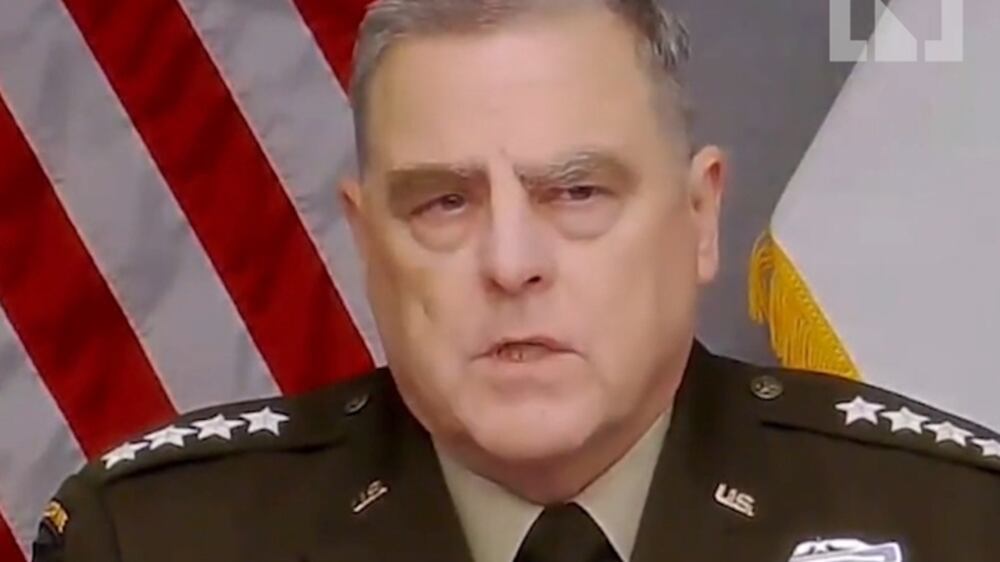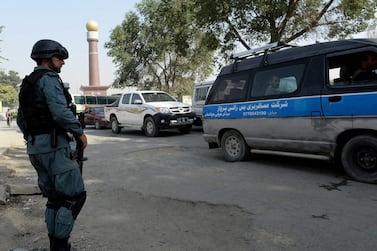Gen Mark Milley, the US military's top officer, outlined on Wednesday a “worst-case” scenario in Afghanistan following the withdrawal of foreign troops, warning of a potential civil war and return of Al Qaeda.
"Tough situation, no good answers to any of it," Gen Milley, the chairman of the Joint Chiefs of Staff, told the Sedona Forum, hosted by the McCain Institute.
President Joe Biden this month announced all US forces would quit Afghanistan by September 11. Other foreign nations with troops in the country will also leave.
"[In] the worst-case analysis, you have a potential collapse of the government, a potential collapse of the military, you have civil war, you have all the humanitarian catastrophe that goes with it and the potential for the return of Al Qaeda sometime down the road,” Gen Milley said.
But, he added, such an outcome was not a “forgone conclusion”, pointing to the possibility of a deal between the Afghan government and the Taliban.
The US will "continue to support diplomatic efforts to bring a negotiating outcome between the insurgents and the regime and that would be best for the people of Afghanistan and best for the region," Gen Milley said.
Asked if the Pentagon would have preferred to leave a residual force in Afghanistan, Gen Milley said the military only offers recommendations to the president.
“We are not advocates. So we present courses of actions … the president is the decision-maker,” he said.
The Wall Street Journal reported this month that Mr Biden had rebuffed military advice to leave a residual force in Afghanistan to stop Al Qaeda from regrouping.
Gen Milley, however, expressed confidence in US capabilities to remotely track Al Qaeda, the group behind the 9/11 attacks that prompted the US-led invasion of Afghanistan in 2001.
“We are not going to take our eye off the ball. We are going to monitor from positions where we can gain access,” he said.
The four-star general said the withdrawal does not mean Washington trusts the Taliban, but noted “attacks on US forces since [the] agreement was signed with [the] Taliban [in 2020] have been very minimal.”
The US is co-ordinating its withdrawal with regional countries, including Pakistan.
On Wednesday, US Defence Secretary Lloyd Austin spoke with Pakistan’s Chief of Army Staff, Gen Qamar Javed Bajwa, the Pentagon said.
“Secretary Austin and Gen Bajwa discussed the importance of regional stability and the desire for the United States and Pakistan to continue working together on shared goals and objectives in the region,” the Pentagon said.








